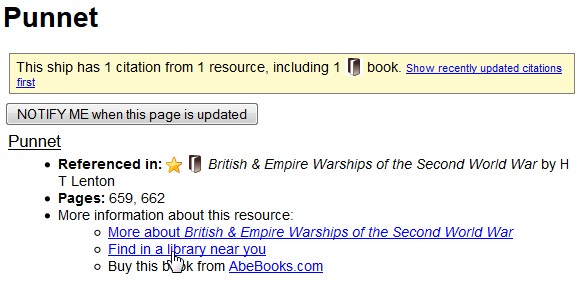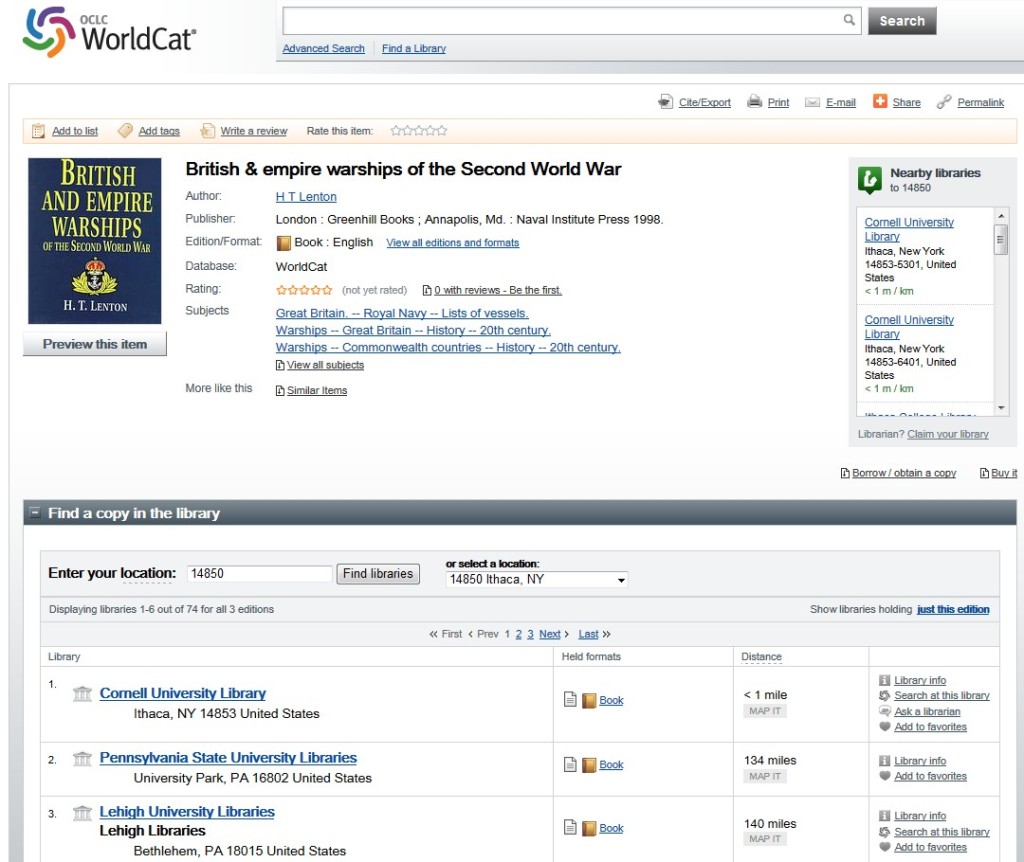This is the first of a few new blog posts. It’s April 1, April Fools Day, but there is, alas, no foolin’ around here. It’s just bad news, start to finish, with the WorldCat subject entity links that have been in the free ShipIndex database since 2009. Read on, to learn more.
When ShipIndex switched from a personal project to a real company, back in 2009, I put all of the citations that had been in the “project” database, into the free database. Anything new was going to go in to the subscription database. I had been in contact with researchers at OCLC, the very large library cooperative that ostensibly helps libraries manage their resources, and shares those holdings, via their publicly available database called WorldCat. I worked with several remarkable people there, who through the years generated a list of all of the “identities” for ships in WorldCat.
This meant we could find books or manuscripts that were by or about ships. So, a book about a ship is easy enough to imagine – the book The Royal Yacht Britannia: The Official History is clearly about that vessel. Having a specific subject heading about that specific yacht makes it easier to differentiate between vessels with the same name. It also created links to books by ships, which often meant logbooks our individually-kept personal journals by people who were on board a vessel. It was a great way of uncovering a lot of useful content about ships that wouldn’t be found otherwise.
But the folks at OCLC said this content needed to be in the free database, not in the then-nascent subscription database. That was fine with me; it was worth including that content and keeping it freely available. The file has been updated occasionally over the past few years, and has always been in the completely free database.
Two or three weeks ago, I was doing some searching, and looked at WorldCat records. I saw notices indicating that the OCLC Identities project, on which these links were based, was going away. This past week, all the links to WorldCat failed. OCLC has ended this project, and with it, links to lots of content that used to be in the database. They’ve also removed linking by Library of Congress Control Number. You’re just searching by phrase now – this seems like the total antithesis of the ideals behind Linked Data.
I have figured out a way to make these links mostly work. The links are now searching by subject headings, rather than by control numbers or identities. As a result, in many cases, they won’t work effectively. In the old file, there was a search to an identity for a ship named “104”, and it specifically went to the entry for a specific ship with that name. Now, the search is for any entry that has both terms “104” and “ship” in a subject heading, so instead of one or two specific results, you get 38 results. Some refer to ‘cruise 104’ of a different vessel. It’s really too bad. Searches for ships like “Mary” are going to terrible, because they’ll include ships named “Mary Rose”, “Mary Ellen”, “Mary & Frank”, “Mary Smith”, and any other ship that has ‘mary’ as just part of its name – instead of going directly to the ship you’re researching. A search for a single, common word ship name, like “Eagle” or “Union” or “James” or “Monitor” or “Wasp” is going to return any record that has that word anywhere in the list of subject headings, even if the term doesn’t have anything to do with a ship name. Connections we’ve made, between specific vessels represented in WorldCat and other citations for those specific vessels, are probably no longer relevant.
OCLC did some work in creating Virtual International Authority File (VIAF) records for some ships, as well. Again, this was great in differentiating between ships with different names. But as far as I can tell, that is also all wiped out.
I’m disappointed and frustrated by this change, as I am with most of what OCLC has done to WorldCat over the past few years.
I’ll leave with this image I collected from WorldCat a few weeks ago, telling me that a copy of a book I wanted was at the State Library of South Australia, but that library is further than the distance to the moon:

My frustration with WorldCat – and OCLC – is ancient news, but it does just keep getting worse. This is really unfortunate. This is NOT a good April Fools joke.



